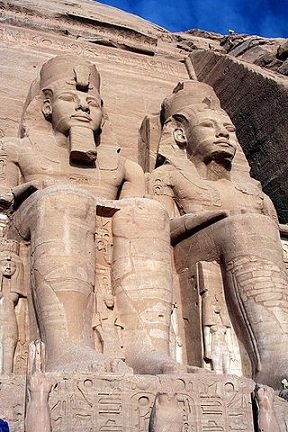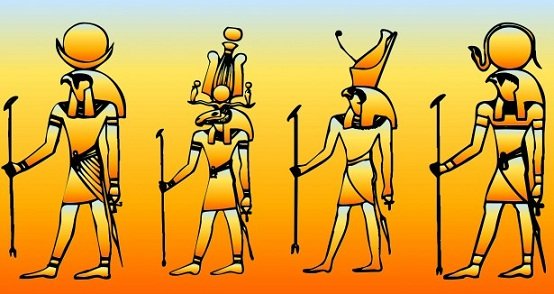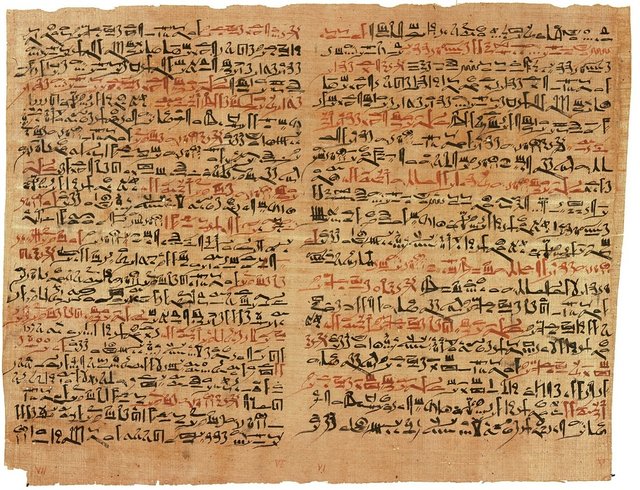In our last two posts (1 and 2), we took a look at the areas of science that flourished on the African continent during the ancient times but have been lost due to lack of appropriate historic records and colonialism. Here, we will be looking at the contributions of Egypt to the evolution and development of scientific disciplines. We will also try to trace this history way back to the Neolithic era which is arguably the last era of the stone age and dates back to around 10,000 BCE to 4,500 BCE (though some have argued that it extends to 1,200 BCE).
No doubt, one particular science discipline that flourished extensively in the Neolithic era was agriculture. However, during that time, the people that were into the study of animals, plants et al were philosophers. This is the reason it has been inferred by philosophy scholars that science is a sub-discipline of philosophy. More so, the word "philosophy" is a combo of "philos" and "Sophia" which, in Greek terms, means the love of wisdom. Having this in mind, let's now look at the origin of science as it relates to the ancient Egyptians.

ANCIENT EGYPT
The history of the origin and development of science can never be complete without mentioning Egypt and there is no disproving to the fact that Egypt is home to ancient philosophers of renown. Take for example, the ancient philosopher Imhotep (who lived around 27th Century BCE) has been regarded by scholars as the true god of medicine. Awesomely enough, he had an Egyptian descent and lived many years before the man we consider as the father of medicine; Hippocrates was born [ref]. One very unique characteristic of ancient scientific disciplines is that they incorporated elements of spirituality without the exception of Egyptian science.
The ancient Egyptian region had a sub-division based on religious centres, of which three centres were recognized and headed by priests who were also scholars. Awesomely enough, even ancient Egyptian kings were subject to the powers wielded by these centres. These centres were known as:
- Memphis
- Thebes (Hermopolis)
- Heliopolis
During that era, school systems were established by religious scholars (these schools can be considered by modern standards as universities). However, the disciplines taught in these schools either revolved around philosophy or were sub-integrated into philosophy. The disciplines that were taught included religion, astronomy, medical science, mathematical science etc. Collectively, all these ancient sub-philosophical disciplines can be called the "ancient wisdom of Egypt". From the above, you will agree with me that, since priests were majorly in charge of educational system of ancient Egypt, you will be correct to infer that a lot of these Egyptian sciences were seen as sacred.

In our last post, we saw the contributions of the Dogon tribe (of Mali) to astronomy, but looking at it holistically, even though they had extensive knowledge of astronomy, the study of stars, heavens and seasons can also be traceable to the ancient Egyptians [ref]. Using their knowledge of astro science, they were able to calculate exactly when to start cultivating and when to harvest. Interestingly, they discovered that it took 12 moon-rise from the time River Nile had an overflow to the next time of overflow - that was how the year was divided into moons (or what we presently call "months").
Asides their knowledge of astronomy, even mathematics had a part origination from Egypt (especially those that have to do with decimals and fractions). To buttress this point, a particular papyrus was excavated in Egypt and called "Rhind Mathematical Papyrus". This papyrus holds the record for being the most acceptable evidence of the richness of mathematical science in the ancient Egypt [ref]. This papyrus contains complex arithmetics, such that is comparable to the present day mathematical science - what an ancient mathematical ingenuity. More so, another evidence was seen in Hermes Trismegistus' texts - which also contained alchemy (which is now called "chemistry") and other scientific disciplines.
Talking about medical science, I have mentioned Imhotep earlier but it is worthy to note that ancient Egyptian medical scholars have been said to have performed surgeries (including caesarean sessions, cataracts tec) long before western science came to Africa, as evidenced in the Edwin papyrus. Did I forget to tell you this? Even "papyrus" itself (that is paper) had its origin in Egypt. Of course, that was why they were able to keep their ancient records. Oh yes? Even hieroglyphics (form of pictorial writing) can be traceable to ancient Egypt.

In conclusion, here's a list of well known ancient Egyptian philosophers and their areas of specialisation
- Imhotep - medicine, astrology, architecture
- Ptahhotep - moral philosophy, behavioural ethics
- Amenhotep - religion, architecture
- Hypatia (first female ancient philosopher) - mathematics, astronomy, Hellenistic philosophy
As a matter of fact, even the history of western philosophy cannot be told without bringing in the contributions of African philosophy (Egypt in particular). No doubt, even the story of civilization is not complete without Africa.
Authored by @samminator
Click on the coin to join our Discord Chat

Witness proposal is here:
Go To Steem Witness Page
In the bottom of the page type: adsactly-witness and press vote.

Use small letters and no "@" sign. Or, click here to vote directly!
Thank you!
If in the etymology of the word science (in Latin) is the meaning of knowledge, there is no difference between knowledge and science. So, philosophy is the mother of all knowledge, of all knowledge, of science. What happens is that at a certain moment in history the separation was introduced (but that is a matter of an archaeology of knowledge, as Foucault said). Hence, that people and civilization as wise as the Egyptian was, is largely the cradle of knowledge, and this was astrological, astronomical, calendar, mathematical, alchemical, medicinal, and so on. Good synthesis, @samminator. Thank you.
Downvoting a post can decrease pending rewards and make it less visible. Common reasons:
Submit
True words buddy, philosophy is the mother of knowledge and this knowledge has its cradle traceable to the ancient Egypt
Downvoting a post can decrease pending rewards and make it less visible. Common reasons:
Submit
@samminator, Ancient Journey is amazing and full of wonders and in my opinion Egypt is most mysterious place and here can see the diversified signs of ancient civilisation.
Specially when we see the Pyramids of Egypt then we can get clues that only we are not achieved the Technological Advancements, in ancient days people had more accurate and hightech Technology.
Posted using Partiko Android
Downvoting a post can decrease pending rewards and make it less visible. Common reasons:
Submit
You're right. Many ancient science disciplines have wowed even the present day science because they are almost comparable to what we see now in the field of science. African history is so rich and has many evidences to point towards the origin of science.
Thanks for reading
Downvoting a post can decrease pending rewards and make it less visible. Common reasons:
Submit
Absolutely true words and welcome. Keep writing more and more exciting pieces.
Downvoting a post can decrease pending rewards and make it less visible. Common reasons:
Submit
Science is the objective explanation of the interpretations of the universal past, in a rational way. Try to check the reality of historical events, human thinking, on the basis of those who were proven or not. In this way, philosophy and science have a close relationship. When we review the Egyptian civilization, its pyramids for example, many of the things that they have done are still an enigma for the current man. So great have been his inventions and so advanced to his time, that the fact that Egypt is one of the most recurrent scenarios in the Bible has led to many of the researchers have sought explanations linked to the sacred texts or divine work and even of extraterrestrials. Interesting post, @samminator.
Downvoting a post can decrease pending rewards and make it less visible. Common reasons:
Submit
Egyptian heritage is one of the oldest civilizations in the world, besides the civiliatio of the Hindus river valley in India, the Tze River valley civilization in China and of course ancient Roman civilization.
Interestingly, there is a link between Roman civilization and this ancient Egyptian civilization. At the time the Romans made Egypt as one of the Roman provinces.
In terms of the development of Egyptian civilization plays a large role in various disciplines both theory and applied technology. In Egypt, the application has been able to develop architectural technology by making various buildings that are monumental. We know pyramids and spinx as relics that we can still enjoy. until now. In the pyramid there is a method of preserving the bodies that we know as mummies. This is also applied technology that is very advanced.
From mathematics, even the Egyptian geese have the ability to calculate the area of a circle and approach the phytagoras theorema.
From the field of agriculture they were familiar with the farming system by plowing using donkeys and cows.
From the literary field we know that hieroglyphic letters have been used in the form of pictograms. This makes us know the Egyptians have left pre-history for a long time.
The description of Egyptian history is certainly not enough in a short time. In fact, when I was in college there was a course that discussed the specifics of ancient Egypt.
Thank you @samminator
Thank you @adsactly
Thank you Steemit
Warm regard from Indonesia
Downvoting a post can decrease pending rewards and make it less visible. Common reasons:
Submit
You're so correct. Many Egyptian architectural structures like the pyramids are still sending the world in awe. What an ancient ingenuity.
Downvoting a post can decrease pending rewards and make it less visible. Common reasons:
Submit
Good post, I don't know how I missed the previous ones.
Downvoting a post can decrease pending rewards and make it less visible. Common reasons:
Submit
Your post and writing your looks nice.
Many many thanks for sharing a good content
Downvoting a post can decrease pending rewards and make it less visible. Common reasons:
Submit
What a mysterious place it is.Egypt..
By the way here's a life changing story Please help me share it
Thank you...!!!
https://steemit.com/life/@mabdullahch/how-cruel-this-world-can-be-a-child-vendor-who-changed-my-life#comments
Downvoting a post can decrease pending rewards and make it less visible. Common reasons:
Submit
Hi, @adsactly!
You just got a 0.33% upvote from SteemPlus!
To get higher upvotes, earn more SteemPlus Points (SPP). On your Steemit wallet, check your SPP balance and click on "How to earn SPP?" to find out all the ways to earn.
If you're not using SteemPlus yet, please check our last posts in here to see the many ways in which SteemPlus can improve your Steem experience on Steemit and Busy.
Downvoting a post can decrease pending rewards and make it less visible. Common reasons:
Submit
I would love to visit Egypt again, but sad to say tourism has been affected during this past few years.
Downvoting a post can decrease pending rewards and make it less visible. Common reasons:
Submit